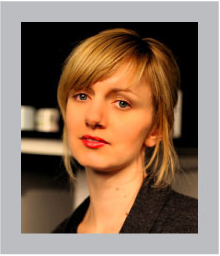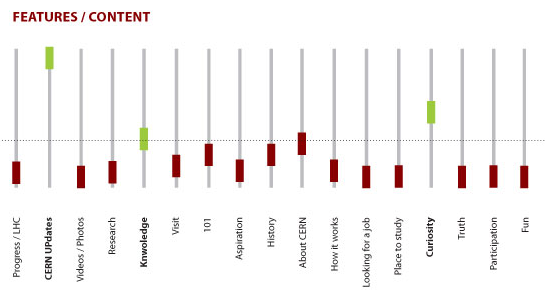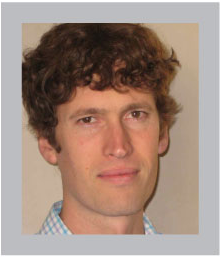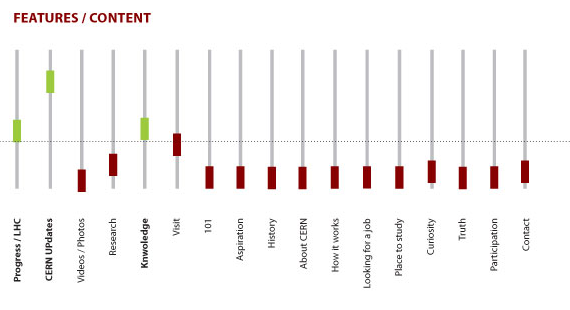Understand your users
The most important people on any website are the users. Even the most personalized website is a communication tool – if it does not speak to people they will quickly lose interest and leave.
Your users are your target audience: everything you write is for them.
For CERN's core website, the web-design team needed to find out who the public website users are and what they want, so they could make design decisions accordingly. Through a simple survey on the CERN public homepage, they asked:
- Who are you?
- What are you looking for on the CERN website?
- Did you find it?
The survey collected information across a "normal" news period, and during the period of high interest in CERN that occurred over the "faster-than-light neutrinos" announcement from the Gran Sasso laboratory in Italy. Nearly 3000 people responded.
Their answers revealed clear trends.
- Students were the most strongly represented user group. "I am a student looking for information about CERN for my homework," was a common survey response. Students were closely followed teachers in terms of numbers of respondents. Teachers said they visited CERN's website to help them prepare classes on physics.
The next important group was scientists, working both inside and outside CERN, looking for specific, often highly technical information. Finally, members of the general public who had heard about CERN in passing were visiting the website out of interest for the organization's activities.
So the CERN public page is primarily interesting to: students and educators; scientists; the CERN community; and the general public. Write for them.
Note: You may notice that one group, "CERN community" is particularly heterogeneous. There are thousands of different user scenarios at CERN, from particle physicists to canteen workers to administrators. Splitting the community up to specifically target every possible subgroup would be impractical, but on the other hand the content strategy for CERN's core website will need to reflect this diversity. A balancing act.
- The majority of survey respondents were looking for timely information – updates – about CERN's activities.
- The majority of survey respondents could not find what they were looking for, grew frustrated, and quickly left the site.
Behaviours observed in analytics data appeared to correlate well with the survey responses.
Outline and use personas
From the research data the design team established four "personas" – simplified summaries of user aims and needs – for each audience group. Each persona is not intended to represent a real person, but rather to give a general idea of what the target audience is interested in, and their level of understanding of physics concepts.
Note that using personas may not be appropriate for every website project. The information you present may be essential to a given job or well-defined role, for example. But personas can help to focus writers and editors on their audiences at the commissioning stage – before they type a single word.
The personas for CERN's core website are listed below. Any content on CERN's core site should be commissioned and written with one of these personas clearly in mind. In this way CERN's editorial teams can provide targeted information relevant to each audience group for a more rewarding reading experience.
The student
Olivia
Olivia is a student. She primarily needs to find information on CERN projects for her homework. She looks for this information on the web whilst at home. Her motivations are strong on Curiosity and Education.
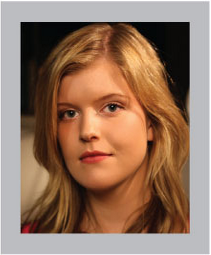
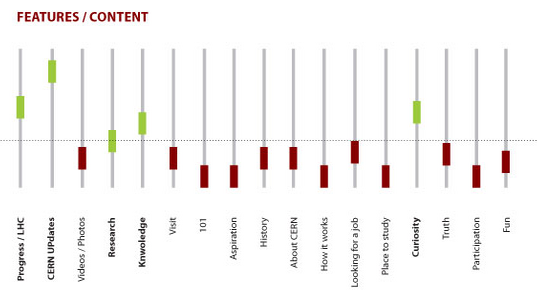
The teacher
Roger
Roger is a High School teacher. He has a mid-level comprehension of what CERN does. His primary user goal is to get updates from the LHC and the various experiments. He uses the CERN site at work.
The scientist
Chris
Chris is a Physics Researcher. He has a high comprehension level and primarily needs very specific information from projects. His motivation is either very specific use-cases, or more general (keeping abreast of updates).

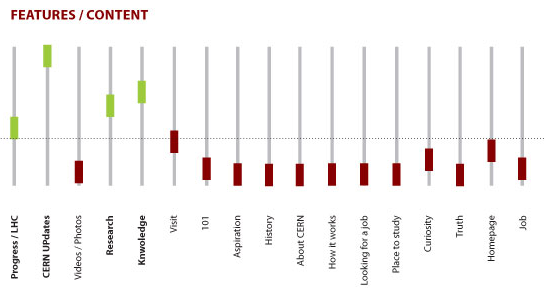
A member of the general public
Joanne
Joanne is a member of the general public. She is curious about CERN. She uses the website at home, mobile and at work. Often prompted by exterior triggers in the media (links from other articles/content), her primary goal is to find information and updates.
